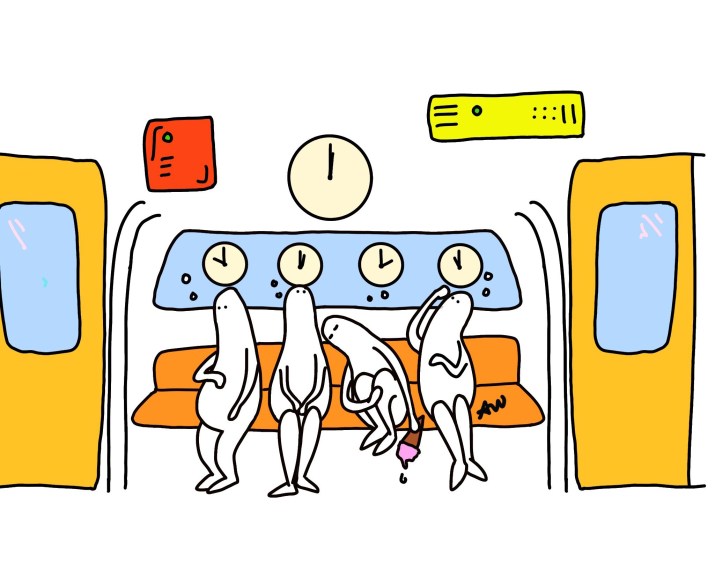
To all of my West Coast friends who complain about my tardiness: I’m not rude. I’m on PST.
No, not the same one as you. Not Pacific Standard Time. Allow me to introduce you to Persian Standard Time.
I define Persian Standard Time as a time system wherein one leaves for an event at the exact time it is set to begin, regardless of how near or far they are from said event.
The practice has cultural origins I’ll touch on later, but beyond that, it has been perpetuated by mainstream portrayals of Iranian American culture, specifically reality shows like “Shahs of Sunset.” Consequently, most Iranians living in the U.S. know “I’m five minutes away” really means you’re 20-plus minutes away (on a good day).
Now, you may be thinking this is just laziness. You are wrong. In fact, a failure to understand a foreign culture’s conception of time is culturally insensitive and borders on racism.
You see, there are differences in practices across countries, across cultures, and the concept of time is no exception. This leads us into a discussion of monochronic versus polychronic cultures.
The United States is monochronic, meaning tasks are often completed one at a time, orderliness is valued and plans are adhered to almost religiously. This, however, is mainly reflected through the ideals of white America, and there are clear exceptions (e.g., immigrants and various communities of color).
Other countries, usually non-Western countries (for example, Iran), are polychronic, meaning that many tasks are completed at a time, and less rigidity surrounds plans and punctuality.
Here’s an example: I went to my aunt’s house so we could carpool to a mehmooni (Persian party). She urged me to arrive by 6:30 p.m.
When I arrived at 7:00 p.m., I felt a tinge of panic, thinking maybe I had come too late. She then insisted that, aware as she was of our culture’s practices, she actually wanted me to arrive at 7:00 p.m. I felt seen, and feeling seen is a nice feeling.
In contrast, I’ve had white friends get irritated with me for showing up to an event five minutes late. Five minutes! I’m sorry, but unless it’s a Frank Ocean concert or front-row seats to President Donald Trump’s impeachment hearing, five minutes really isn’t that bad.
I am not to blame for my culture, and there is no reason for me to feel guilty because those around me see it as incompatible with their Eurocentric model. This extends to all my friends on “people of color time.”
If nothing else, Pomona College has taught me that we should embrace our differences, rather than be demonized because of them.
Besides, who the hell are 5C students to judge, anyway? The damn clock tower at Pomona goes off every hour on the 47th minute (haha, so funny…), which throws off many people’s schedules, and let’s face it: “Pitzer time” is essentially synonymous with “Sorry, I got too baked.”
I’m not suggesting that college student tardiness is the same as different cultural conceptions of time; what I’m suggesting is some empathy is in order.
The U.S. is notorious for colonizing and whitewashing (or altogether erasing) non-European cultures. The fact that Iranian Americans are able to cling to their lateness, despite being immersed in a sea of colorless complaints, is nothing short of miraculous.
If an entire community is able to maintain a given practice, one true to its country of origin and unadulterated by the microaggressive judgments of a Euro-normative society, then its culture cannot be written off as “carelessness.” This is the ultimate offense.
So the next time a POC friend of yours is a few minutes late to an event, ask yourself if they’re careless or if you’re just culturally insensitive.
Cameron Tipton PO ’20 is a habitually tardy Persian. Always tell them to come 30 minutes earlier than you want them to arrive.

Facebook Comments